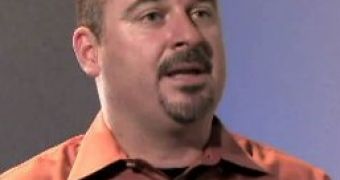Microsoft indicated that US IT professionals were lagging behind their counterparts in UK, Japan and Germany when it comes down to the budgets they allocate to fueling innovation. This is the conclusion of a study commissioned by the Redmond-based company to Harris Interactive, with over half of those surveyed agreeing that the economy has redefined the role of IT and that financial shortcomings directly impact and have the ability to hinder innovation.
The software giant opined that the global economic crunch should be used as an opportunity to drive IT innovation. Essentially, the company looks to IT as a strategic asset, especially in the context of the economic downturn.
“Businesses that focus solely on reducing IT costs in this economy will not be as well positioned as those that develop new capabilities and solutions,” explained Bob Kelly, corporate vice president of infrastructure server marketing at Microsoft. “IT is uniquely capable of not only delivering bottom-line cost savings, but also providing innovative solutions that will help organizations weather the storm and thrive. Now, more than ever, IT is a strategic asset.”
US IT managers have reserved only 29% of their budgets for innovation, the Redmond-based company revealed. This detail places the US last in comparison to the other three countries included in the survey. IT pros in Japan and the UK are by far the most dedicated innovators, planning to spend no less than 41% of their budgets on innovation, while similar investments will cost IT professionals in Germany 35% of their budgets. However, despite the financial resources pledged to innovation, only a mere 22% of those surveyed indicated that they were looking to gain a competitive edge in this manner.
“Companies that make smart investments in IT will gain a foundation for their business that empowers innovation, boosts productivity and, ultimately, helps improve the bottom line,” Kelly added. “Investing in IT is a path to success, now and in the future.”

 14 DAY TRIAL //
14 DAY TRIAL //